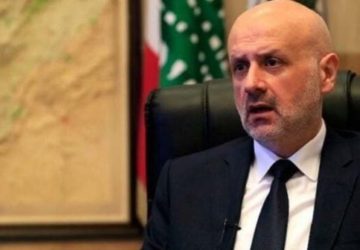Listen to the article
The average Lebanese citizen used to earn a modest salary. For the sake of this story, let’s assume that this income was a hundred Lebanese pounds. However, it’s important to clarify that here, the pound is a mere fictional currency, as in reality, a hundred lebanese pounds is not a typical salary in a country like Lebanon, where the pound witnessed unprecedented devaluation, with its value plummeting over the years. From this one hundred pounds, the employee is indebted by more than two hundred pounds compared to his earnings. This means that he has to pay double his salary to settle his debts. One day, he decided to stop paying them. He told his wife that their financial situation is exceptional, and they managed to address the deficit in the household budget. He explained to her that their one hundred Lebanese pounds can be used for purchases, which implies that they are living within their means and are not operating at a deficit.
In fact, this is exactly what the government, backed by a majority within the parliament, just did. While many of the MPs initially criticized the budget, arguing that it fell short of the desired aspirations, they ultimately decided to vote in favor of it. The government, alongside apathetic MPS, overlooked the fact that since 2020, Lebanon chose to abstain from repaying its debts and has yet to make any systematic attempts to negotiate with creditors. Therefore, debt servicing – which involves a substantial amount –, is conspicuously absent from the government’s budget. If factored in, this would have resulted in an astronomical deficit.
Despite having to deal with this issue and the major state of denial experienced by the man and his wife, – namely the Lebanese state –, the man overlooked the fact that the salaries of his employees — spanning from the housekeeper to the caretaker, driver and various others in their modest household — have undergone fluctuations in value. But this man is still paying all these salaries from his one hundred Lebanese pounds without acknowledging the currency’s fluctuation. Rather than giving up all these superfluous services, the man and his wife chose to look at the situation as a new reality, and kept sustaining all these modest salaries.
As for the couple’s incoming bills, they do record their dues without actually settling them, and the electricity is still being supplied the way it used to. This mirrors the state’s approach to Iraqi fuel, wherein yes, its value is recorded on paper, but the amount remains unpaid by the government.
Based on this economical model, the man can proudly boast to his wife that their household budget is deficit-free. However, he forgets that sooner or later, he will need to settle his debts, otherwise, he won’t be able to secure loans or effectively deal with any of his creditors, including his neighbors.
The man has also forgotten that he has IOUs, similar to signed checks, but the holder of these IOUs has not gone to the bank to claim them, and no legal action has been taken yet. This man’s situation is truly exceptional!
He really believes that his budget is a true representation of a well-managed reality, and is hence quite an accomplishment. He proudly showcases this achievement to relevant authorities, including the International Monetary Fund, which called for the initiation of a support program aimed at achieving a zero deficit. In fact, the deficit made it to zero, but in a convoluted and illogical way.
One can only congratulate him for enjoying the credits given by his cheerful wife, children and anyone else around. However, one day, his illusions will crumble and the truth will be uncovered. On that specific day, his wife’s words will provide very little comfort.





